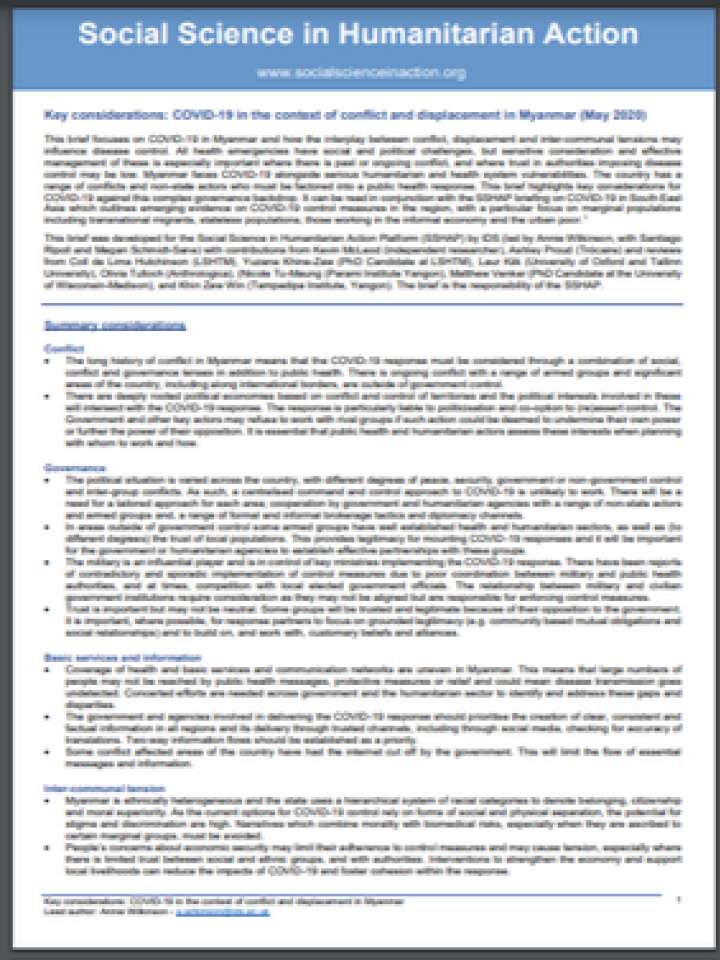COVID-19 in the context of conflict and displacement – Myanmar
This brief focuses on COVID-19 in Myanmar and how the interplay between conflict, displacement and inter-communal tensions may influence disease control. All health emergencies have social and political challenges, but sensitive consideration and effective management of these is especially important where there is past or ongoing conflict, and where trust in authorities imposing disease control may be low. Myanmar faces COVID-19 alongside serious humanitarian and health system vulnerabilities. The country has a range of conflicts and non-state actors who must be factored into a public health response.
A range of issues arise where there are disease outbreaks in contexts of conflict or displacement: large numbers of people living in conditions with poor and uneven coverage of health and basic services; limited access to camps and conflict-affected areas; a proliferation of competing state and non-state groups, often with disincentives to coordinate and cooperate; lack of trust and legitimacy between vulnerable populations and those in power; the potential for excessive use of force as part of disease control; opportunistic use of control strategies and resources to extend power or claims; the potential for stigma and exacerbation of communal divisions; and weaponisation of disease response and relief. This brief highlights key considerations for COVID-19 against this complex governance backdrop in the areas of conflict, governance, basic services and information, inter-communal tension, civial society, and religion.
Explore further
